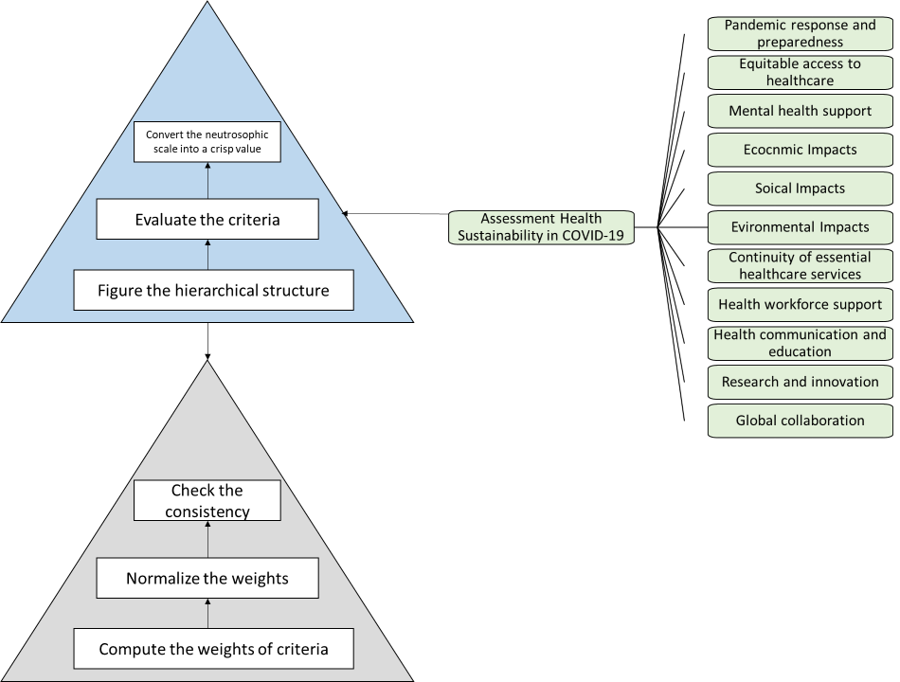Assessment the Health Sustainability using Neutrosophic MCDM Methodology: Case Study COVID-19
Main Article Content
Abstract
As a result of the severe difficulties presented by the COVID-19 pandemic, a holistic response is required, one that takes into account both the urgent needs of patients and the long-term viability of healthcare institutions. This study aims to give a complete knowledge of the tactics and techniques necessary to maintain the continuing well-being of people and communities by examining the idea of health sustainability in the context of the COVID-19 pandemic. This study conducts a literature review to investigate the many facets of health sustainability, such as emergency preparedness, mental health care, health workforce support, health education and communication, research and innovation, international cooperation, and resilience in the face of pandemics. This study's results call attention to the necessity for universal healthcare access, mental health services, the upkeep of critical services, and international coordination as part of the COVID-19 response strategy. Societies may construct robust healthcare systems that can deal with the short- and long-term effects of the pandemic if they use a comprehensive strategy that takes into account social, economic, and environmental aspects. So, we used the concept of multi-criteria decision-making (MCDM) to deal with various criteria of health sustainability. The AHP MCDM method is used to deal with various criteria and give the weights of these criteria. The AHP used a comparison between various criteria, so we used the neutrosophic environment to deal with the vague data in the comparison process. The proposed framework is applied in the application of COVID-19.
Downloads
Article Details

This work is licensed under a Creative Commons Attribution 4.0 International License.





